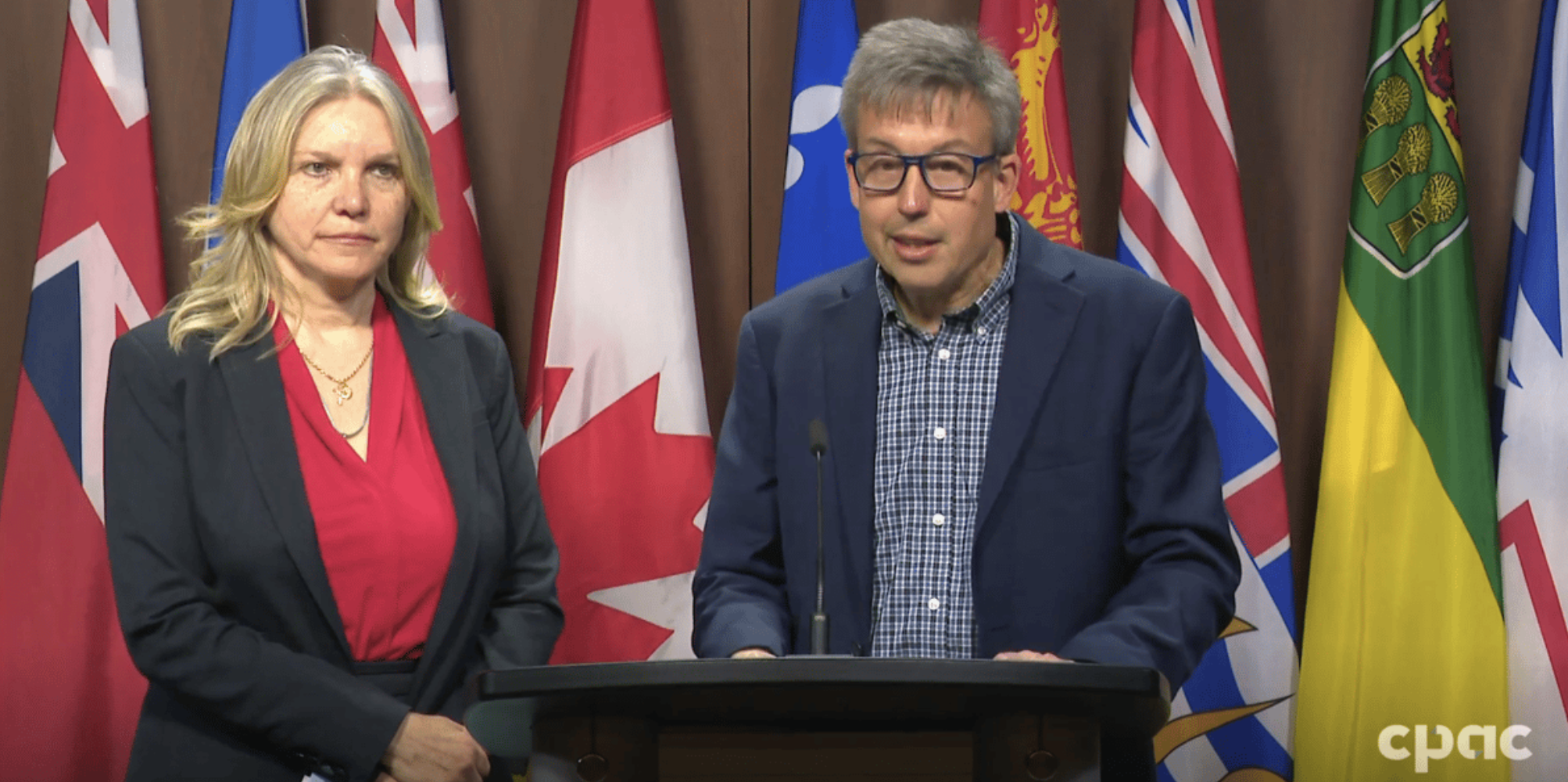VANCOUVER — The Euthanasia Prevention Coalition and the Delta Hospice Society are calling for a comprehensive review of Canada’s medical assistance in dying (MAiD) legislation, citing increasing cases of coercion, confusion with palliative care, and a lack of protections for those who want nothing to do with the practice.
Speaking at a joint press conference on May 7, EPC executive director Alex Schadenberg said that although MAiD has expanded rapidly since its introduction, a full review of the law has never taken place.
“We are calling on the federal and provincial governments to provide a complete review of Canada’s medical assistance in dying law. The reason is simple: it’s never been done,” said Schadenberg.
The coalition fears the increasing integration of MAiD into Canadian health care is eroding trust in hospices and hospitals, especially for vulnerable populations. Both organizations say MAiD is incompatible with traditional palliative care, which aims to neither hasten nor postpone death.
“We support the World Health Organization’s definition of palliative care, which intends neither to hasten nor to postpone death,” Schadenberg said.
Canada’s MAiD law was expanded in March 2021 through Bill C-7, which removed the requirement that a patient’s death be reasonably foreseeable, eliminated the 10-day reflection period for those deemed terminally ill, and introduced a two-tiered system where non-terminal patients must wait 90 days, while the waiting period for terminally ill patients was removed.
The petition comes in the wake of increasing international scrutiny of Canada’s MAiD programs and laws. On March 21, 2025, the United Nations Committee on the Rights of Persons with Disabilities urged Canada to repeal the provision allowing MAiD for those who are not terminally ill (known as “Track 2”). The committee also rejected proposals to expand MAiD access to mature minors, to allow advance directives for euthanasia, and to include mental illness as the sole underlying condition.
Schadenberg emphasized that a genuine review of MAiD must include all perspectives and take into account the personal stories that have emerged.
“I’m not saying [the review] should be focused on limiting the law or not,” he said. “Let the stories come out, and let people see without judgment how this law is working—and how it needs to change.”
He pointed to findings from Ontario’s Office of the Chief Coroner, which reported that poverty, homelessness, fear, and isolation were driving some people to request MAiD. Between 2018 and 2023, the province recorded 428 MAiD deaths that did not comply with legal safeguards.
“These 428 non-compliant deaths prove that the Carter decision [on which the legalization of assisted dying was based] is not being followed. There is no scrupulosity,” said Schadenberg. “This needs further investigation.”
Angela Ireland, president of the Delta Hospice Society, echoed the call for MAiD-free spaces and legal protections for Canadians who want traditional care at the end of life.
“There are people who don’t want anything to do with MAiD,” Ireland said. “They should have the right to receive health care and go on an end-of-life journey with an authentic and historically accurate palliative care model.”
Ireland said patients and families are increasingly reporting pressure to consider MAiD even when they have explicitly refused.
Ireland recounted how one woman asked her, “How do we get the doctors to stop asking my husband if he wants MAiD? He’s been asked five times and said no each time, and he continues to be asked. At what point does it become harassment?”
Both Ireland and Schadenberg warn that the erosion of trust in health care is driving fear and uncertainty, particularly among those facing difficult diagnoses or end-of-life circumstances.
“We have a MAiD system that has gotten completely out of control,” Ireland said. “It needs to be clawed back. People are frightened to go to hospitals and hospices, and that needs to end.”
Schadenberg shared the case of a woman in Ontario with multiple chemical sensitivities who chose MAiD after being unable to find adequate housing. “She had no irremediable health condition. What she needed was proper housing and supports,” he said. “Instead, she got euthanasia.”
The coalition and the hospice society are calling for legislative reform that includes legal protections for MAiD-free hospices, proper consent procedures, and a renewed commitment to authentic palliative care that affirms the dignity and worth of each human life to its natural end.




